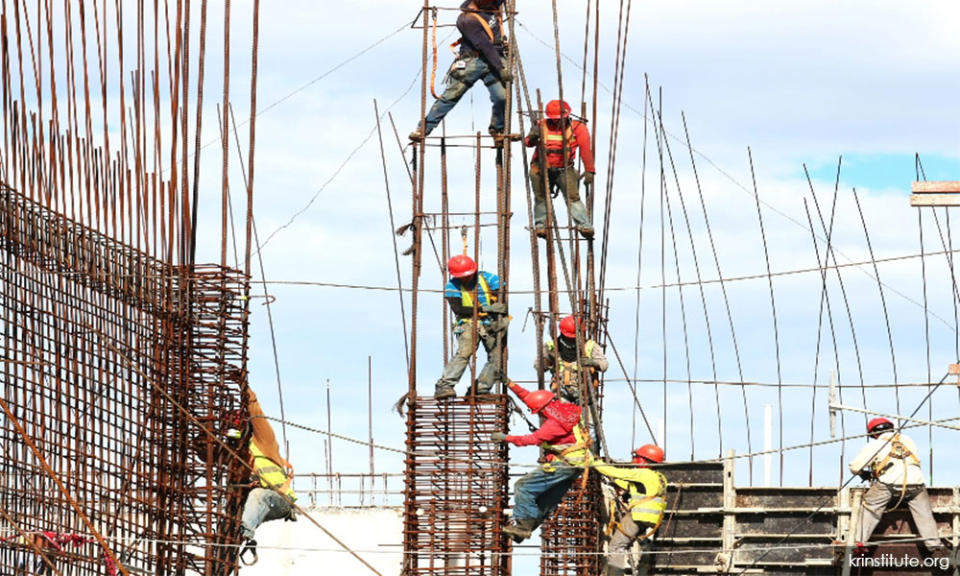'Foreign workers easily exploited as many don't know their rights'

“What power do I have? This is not my country,” Karim (not his real name) said as he reflected on the years he has been working for a construction company in Malaysia.
The Bangladeshi, who arrived legally in Malaysia in 2008, said his working hours and days were never fixed.
For some months, he would work for 25 days and in other months, he would work for 30 days, without off days or leave. His days off were entirely at the company’s discretion.
Employment contracts were written in English - and so he never understood the whole content. Yet, he signed the document because of his need to work, he told Malaysiakini.
Since the Covid-19 pandemic, Karim and his fellow foreign colleagues found wages were not paid diligently.
Last year, Karim said, his back wages amounted to seven months’ pay. Unable to work for free any longer, he ran away.
Even though he knew his employer was in the wrong, Karim did not dare to seek assistance from the authorities. Instead, he simply sought work with another company.
'No choice but to accept abuse'
Unlike most foreign workers who become undocumented when they flee from an abusive employer, Karim managed to retain his immigration status with the help of his recruitment agent.
But even at his new workplace, he believes he has no choice but to accept some level of abuse from his employer. He is not alone.

“A lot of foreign workers are not aware of their rights under the labour law because there is a lack of education and information on their rights,” Bar Council’s Institutional and Law Reform Committee chairperson M Ramachelvam said.
He noted that all foreigners who work in Malaysia are subjected to the same labour laws that apply to Malaysian workers.
They include the Employment Act 1955, Industrial Relations Act 1967 and Employees’ Provident Fund Act, he said, but this might not be something the workers are aware of.
“There is no proper orientation programme to tell them about their rights under the contracts of employment.
“No proper orientation programme run by the countries of origin nor the country of destination which is Malaysia, on the labour law rights of workers,” Ramachelvam said.
'Subject to labour exploitation'
Last year, migrant rights NGO Tenaganita received 376 cases from foreign workers, despite Covid-19-related movement restrictions imposed by the government.
Its executive director Glorene Das said each case typically involves six to eight human rights violations by key players such as employers, recruitment agents, outsourcing agents, medical institutions and government agencies.
They include excessive work hours or requirements, conditions of forced labour, unpaid wages, sexual harassment, unlawful detention, unsafe workplaces and employers or agents who allow visas to lapse, placing their workers in immigration jeopardy, she said.

Glorene said some sectors do carry out some orientation training for workers but most are task-oriented or may include some information on local culture.
“It is not based on human rights, labour rights or laws and policies. Further to that, there is nothing on where they should go if they face problems at the workplace,” she said.
‘Employers may not be keen to sit through workers’ rights training’
Employers of foreign workers also do not receive any training on what they can and cannot do, Glorene said.
She believes the Labour Department is obliged to ensure that employers know what the law expects of them, but such information is not systematically disseminated.
“We feel such training sessions must also be conducted with the management too, so the workers and the management are in the same level of understanding when it comes to rights violation and exploitation,” she said.
However, Association of Employment Agencies president Foo Yong Hooi believes not all employers will want to undergo such training.
"In Malaysia, we have a lot of VIPs and senior government officials (who employ foreign workers).
“Do they need or want to attend the courses? Definitely not. It is a lengthy system and they will not be willing to sit through the procedures.
“It is a great thing if they consent to attend the courses as they will be informed on the agreements and rights of the foreign workers. However, it is not an easy thing to be implemented in Malaysia,” Foo said.
He said some countries now provide workers with pre-departure training and one-day training on arrival, but this does not include information on rights under Malaysian labour law, he said.
In fact, he said, some may believe that empowering foreign workers with knowledge of their rights might create complications for employers.
Foo believes that recruitment agencies should act as protectors of the workers they recruit and ensure the welfare of these workers.
“If the foreign workers that work in Malaysia through recruitment agencies confront problems like abuse or unpaid wages, their respective agents will review their rights. For instance, when there are cases of unpaid wages, the agents will report this to the Labour Department.”
‘Enforce laws, inspect more often’
Awareness of their rights, however, may not be enough to safeguard foreign workers if the law is not enforced and support mechanisms are not in place, migrant rights NGO, North South Initiative executive director Adrian Pereira said.
“The knowledge only is not enough. It must be backed up with appropriate mechanisms from the government to resolve the issue.
“Knowing your rights is one thing. Knowing who to complain to is another. Knowing the solidarity and support system is also another thing so it could give you the courage to pursue a case, let’s say abuse,” Adrian said.
One way to better safeguard foreign workers is to increase the number of labour inspectors to monitor their well-being, Bar Council’s Ramachelvam said.
This could include inspecting firms that hire foreign workers to ensure laws on housing, payment of wages, overtime and days off are adhered to, he said.

For example, Ramachelvam said, glove manufacturing giant Top Glove found itself in hot water last year after its factories and workers’ accommodations were inspected following an outbreak of Covid-19 there - contributing to the largest cluster to date.
Upon inspection, it was found that the company did not comply with the Minimum Standards of Housing, Accommodation and Employee Facilities Act 1990 (Act 446) resulting in opening 19 investigation papers opened against the rubber glove maker in December.
Ramachelvam said this showed that labour inspections should be periodic and not one-off.
'Recognise foreign workers' contributions'
Embassies should also play a more active role in ensuring their citizens are safeguarded, the labour advocates said.
This includes ensuring bilateral agreements between Malaysia and the countries of origin of the workers which demand sound contracts and other measures of protection, they said.
Ultimately, Glorene said, Malaysia needs to recognise that millions of foreign workers have contributed to the economy and well-being of Malaysians, and should be given their due rights.
“They have played a huge part in securing economic growth for Malaysia and will still be needed in the years to come.”
NABILA HASNOR is a journalism student. This story was produced as part of the Chevening Alumni Mentorship Programme by the British High Commission.

